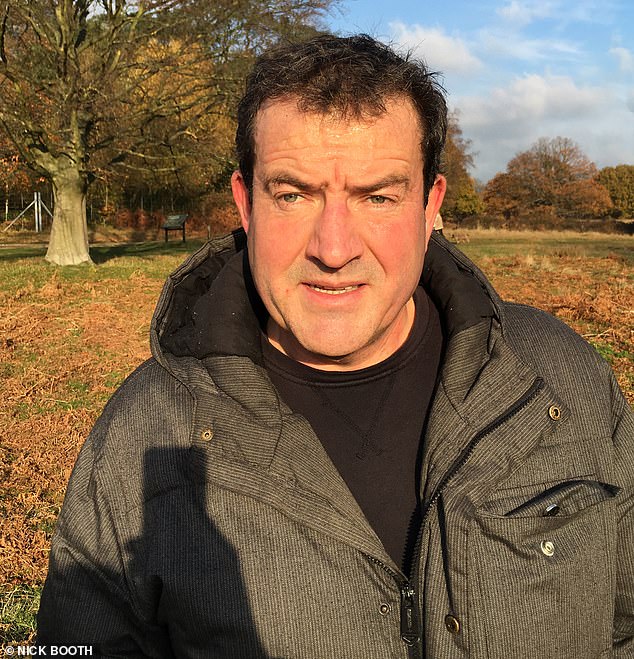by Nicholas Booth

You really ought to go back to work, you know. The rewards massively outweigh the risks – which I’m guessing are pretty minimal for most of you.
I base my hunch on the fact that I survived four days in Croydon University Hospital, when it was supposedly one of the most dangerous hospitals in the country, at a time when my body had no defence against infection.
I’m 59 and, as will be revealed, probably have little in the way of an immune system, which is weird because – Bowel cancer and Pyoderma Gangrenosum aside – I feel fine.
So if I can survive the exposure, then most people can – according to my unscientific, anecdotal argument. I’m willing to stand corrected – that’s what the comments box is for. Here are the variables first.
In April, one in four patients at “Maydie Hospital” (as locals call it) were dying from coronavirus. At least that’s what their death certificate said: the cause of death often seems open to interpretation.
I have two conditions that handicap my body’s defences.
The chemotherapy used to arrest my cancer will kill all other types of rapidly-dividing cells, which wipes out your body’s defence mechanisms, such as the production of white blood cells. The skin-blistering agony that is Pyoderma Gangrenosum is an immune system disorder, the detection of which appears to be an imprecise science, judging by how long a specialist clinic failed to recognise it. The wounds it created on my feet made me want to die and as a result I was put on Buprenorphin, a powerful opiate, by Pain Management at my local hospice.
To treat the wounds I was taking Prednisolone, a steroid designed to dampen the functioning of my immune system, to prevent it from turning on me. As a result of this vulnerability, Croydon’s “Maydie Hospital”was the last place I should be going at that time.
On April 3rd the Government had texted me an instruction not to leave the house for twelve weeks, even to go into the garden. As someone who is at high risk of severe illness if I were to catch the virus, I was told it was too dangerous even to leave the window open for more than three hours a day. I was judged to be so vulnerable that I had to practice social distancing in my own home.
But then I managed to injure myself so badly that a hospital admission was unavoidable. First I had pumped my veins with blood thinner, so any injury would bleed excessively. Then I tore my thigh muscle by doing too many squats.
A PICC Line in my arm, a necessary aid for chemotherapy, had to be supported with daily injections of the blood thinner Fragmin in order to stop the blood from clotting around the plastic tubing within my veins. While preventing deep vein thrombosis (DVT) it also encourages internal bleeding. The opiates made me oblivious to the torn-muscle pain, so I only noticed something was wrong when it created a severe swelling in my left leg. The upshot was that, despite my known vulnerability to infection and the high incidence of death among new patients, I had to be admitted to hospital.
Why did I survive? There are a number of possible reasons.
The hospital seemed empty. Whole wards and departments had been cleared out. Once admitted to a ward, I was kept in isolation in my own room. I’m very grateful of course, but was this overkill perhaps? Is the NHS creating a backlog of patients that needs to be addressed?
It might be that the parts of the hospital I was contained in – the wards and the scanning department – had been kept virus-free. Maybe my body’s immune system is still pretty good. Who knows?
There is a theory that anti-coagulation drugs actually help to combat the effects of coronavirus. This was first mooted after a study by The Irish Centre for Vascular Biology.
According to Professor James O’Donnell, Director of the Irish Centre for Vascular Biology, severe COVID-19 infection causes abnormal blood clotting. The micro-clots within the lungs can be fatal. Patients with higher levels of blood-clotting activity had a significantly worse prognosis, says O’Donnell, a consultant haematologist in the National Coagulation Centre in Dublin’s St James’s Hospital.
COVID-19 causes hundreds of small blood clots throughout the lungs, and blood-oxygen levels plummet. But not if you are on anti-coagulation drugs, says the study. Another study released around the same time, this time by New York’s Mount Sinai Hospital, came to the same conclusion.
Intravascular clotting is rare among viruses, according to Professor Peter Openshaw, who sits on the Government’s Scientific Advisory Group for Emergencies (SAGE). However, the balance between treating the clotting and causing bleeds is precarious, he says. It’s too early to say if Fragmin can save patients dying from respiratory disease – or whatever category Corona falls under now.
Blood thinners should only be used when medically advised and following the direction of medical professionals and nothing has been proven either way – yet. Increasing doses of anticoagulants to much higher levels increases the risk that patients will suffer excessive bleeding, which can be fatal.
So it’s too early to judge Fragmin as a cure. Meanwhile, is it OK to go back to work?
I’m lucky in that I can work from home and any trips into London can be done outside the rush hour. Even so, I don’t think I’d hesitate to hop on a train or a bus – only the Tube would be a risk too far for me.
The danger, I would say, is definitely being exaggerated.
Nicholas Booth is a health journalist who writes for the Mail on Sunday and the Daily Mail, among other publications.













To join in with the discussion please make a donation to The Daily Sceptic.
Profanity and abuse will be removed and may lead to a permanent ban.